David McRaney's Blog, page 5
March 5, 2024
YANSS 282 – How the psychology of single questions changed everything about how we make sense of how we make sense of everything
In 1974, two psychologists, Daniel Kahneman and Amos Tversky, as the New Yorker once put it, “changed the way we think about the way we think.” Before their landmark research went viral (in the way things went viral in the 1970s), the prevailing wisdom was that human beings were, for the most part, rational optimizers always making the kinds of judgments and decisions that best maximized the potential of the outcomes under their control. This was especially true in economics at the time. The story of how they generated a paradigm shift so powerful that it reached far outside economics and psychology to change they way all of us see ourselves is a fascinating tale, one that required the invention of something this episode is all about: The Psychology of Single Questions.
Listen on Apple Listen on Spotify Listen on GoogleRSS – Patreon – Simplecast – Amazon Music – Audible
OFFICIAL DESCRIPTION OF THEY THOUGHT WE WERE RIDICULOUS
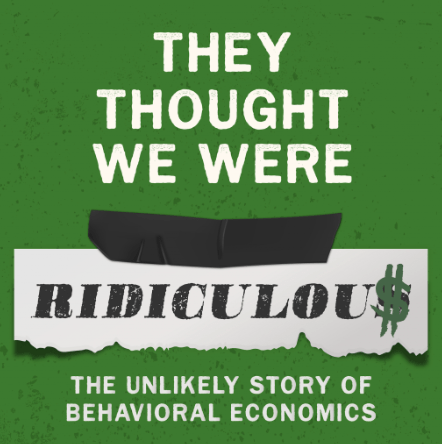
In a world where monumental achievements are rare, a riveting narrative emerges that transcends conventional norms. “They Thought We Were Ridiculous” podcast series chronicles the groundbreaking stories of a small band of rebels who defied the status quo and altered the fabric of economic and psychological thought to form the field of behavioral economics.
A collaboration between leading podcasts Opinion Science and Behavioral Grooves, the five-part series highlights the voices of Nobel laureates and unsung academic heroes who dared to challenge established norms, including Danny Kahneman, Richard Thaler, Colin Camerer, Linda Babcock, George Loewenstein, Drazen Prelec, Shlomo Benartzi, and many others.
The series takes us from the rebellious inception of behavioral economics to its integration into governmental agencies, NGOs, non-profits, and corporations worldwide. “They Thought We Were Ridiculous” spotlights real-world impact and uncovers the pivotal moments when behavioral economics found its way into the corridors of political power in the UK, the United States, and beyond. Each episode unveils profound contributions from these mavericks and reveals the uncharted territory they navigated to reshape our understanding of human behavior and decision-making.
“We hope you enjoy all five episodes in this series,” says Andy Luttrell, PhD, Associate Professor of Psychological Science at Ball State University, and host at Opinion Science. “This podcast captures the spirit of those who dared to challenge the norm and explores the future for behavioral economics.”
“Over hundreds of our collective podcast discussions with pioneers in the field, we were inspired to share their stories in podcast form so others can appreciate the magnitude of their contributions,” noted Tim Houlihan, Behavioral Grooves co-host.
Behavioral Grooves co-host Kurt Nelson, PhD, added, “This series offers insights into how a few rebels pursued their curiosities, forged alliances, and spent lots of unstructured time to birth ideas that shape the world we live in.”
“They Thought We Were Ridiculous” promises a captivating narrative beyond the academic realm. It is a testament to the power of curiosities, challenging assumptions, and reshaping our understanding of what it means to be human.

Andy Luttrell is a social psychologist trying to understand how people form strong opinions. He’s an associate professor of psychological science at Ball State University and host of the podcast Opinion Science. His original research on the psychology of moral persuasion, ambivalent attitudes, and opinions that persist over time has been published in top peer-reviewed journals.
Links and SourcesApple – RSS – Simplecast – Spotify – Amazon Music – Audible – Google Podcasts – Patreon
February 19, 2024
YANSS 281 – How a pernicious cognitive bias limits our ability to use chatbots properly (and how to overcome it)
Jeremy Utley, Kian Gohar, and Henrik Werdelin sit down with David McRaney to discuss the surprising results of a new study into what happens when groups of people work together to brainstorm solutions to problems with the help of ChatGPT. It turns out, a common cognitive bias makes it difficult to produce a steady stream of great ideas. Based on their research, Utley and Gohar created a new paradigm for getting the most out of AI-assisted ideation which they call FIXIT, and you’ll hear all about it in the episode.
Listen on Apple Listen on Spotify Listen on GoogleRSS – Patreon – Simplecast – Amazon Music – Audible
 Jeremy Utley
Jeremy UtleyJeremy Utley is an adjunct professor at Stanford University, co-author of Ideaflow: The Only Business Metric That Matters, a Thinkers50 Top Innovation Leader, and a General Partner at Freespin Capital. He’s the host of Paint & Pipette: The Art & Science of Innovation, and co-host of Beyond the Prompt. He’s had the privilege of teaching nearly a million students of innovation worldwide. His blend of deep experience, sharp thinking and penetrating insight have earned him a reputation as a go-to advisor for CEO’s and start-up founders alike. His current research passion is helping individuals and organizations accelerate their comfort and confidence leveraging generative AI.
 Kian Gohar
Kian GoharKian Gohar is the founder of Geolab, an innovation research and leadership development firm focused on coaching, strategy, and design. A former executive director of the XPRIZE Foundation and Singularity University, Kian has coached the leadership teams of dozens of Fortune 500 companies, unicorns and startups on disruptive innovation, exponential technologies, leadership and the future of work. He is the co-author of “Competing in the New World of Work” with Keith Ferrazzi, which was published in 2022 by Harvard Business Review Press. He is a graduate of Northwestern, the London School of Economics, and Harvard Business School.
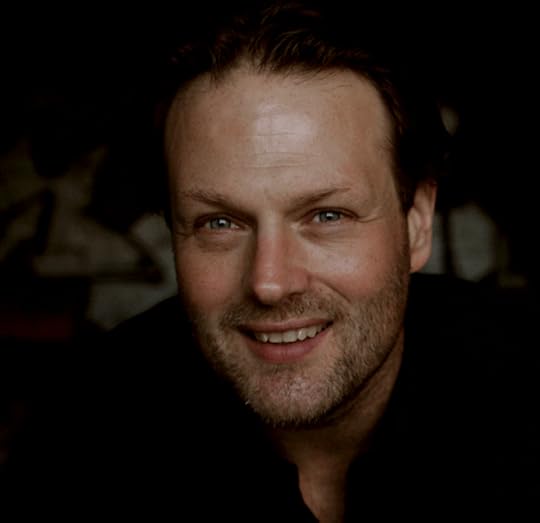 Henrick Werdelin
Henrick WerdelinHenrick Werdelin is the founder of Barkbox, a dog toy and treat subscription service, and Prehype, a venture building research and development group headquartered in New York. For the past 15 years, Henrik has years been involved in a range of successful startups and corporate incubations as a founder, investor, and advisor. These companies include HotPotato, AndCo, NewSmart, ReadMill, Betabox and Sunrise. Prior to working with startups, Werdelin was an Entrepreneur in Residence with Index Ventures and ran product development for MTV International. Originally from Denmark but now living in the US, Werdelin has been recognized as one of the “Top 100 Most Creative People In Business” by Fast Company and named to the “Silicon Alley 100” by Business Insider.
Links and SourcesApple – RSS – Simplecast – Spotify – Amazon Music – Audible – Google Podcasts
February 5, 2024
YANSS 280 – The science behind building the skills required to become a supercommunicator
Our guest in this episode is Charles Duhigg, a Pulitzer Prize winning journalist and writer for the New Yorker Magazine who is also the New York Times Bestselling author of The Power of Habit and Smarter Faster Better. His new book is Supercommunicators, a practical and approachable guide to what makes great conversations work. We discuss the science behind what it takes to form a connection with another human being, how to generate or nurture a bond through dialogue, and how to form, repair, and maintain a conversational pipeline – through listening and communicating –that guarantees reciprocation and understanding.
Listen on Apple Listen on Spotify Listen on GoogleRSS – Patreon – Simplecast – Amazon Music – Audible

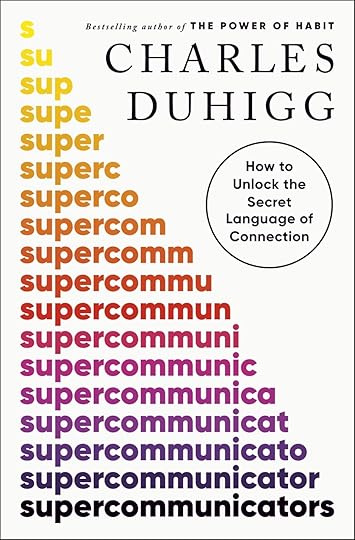
Official Description of the Book:
From the bestselling author of The Power of Habit, a fascinating exploration of what makes conversations work—and how we can all learn to be supercommunicators at work and in life
“A winning combination of stories, studies, and guidance that might well transform the worst communicators you know into some of the best.”—Adam Grant, author of Think Again and Hidden Potential
Come inside a jury room as one juror leads a starkly divided room to consensus. Join a young CIA officer as he recruits a reluctant foreign agent. And sit with an accomplished surgeon as he tries, and fails, to convince yet another cancer patient to opt for the less risky course of treatment. In Supercommunicators, Charles Duhigg blends deep research and his trademark storytelling skills to show how we can all learn to identify and leverage the hidden layers that lurk beneath every conversation.
Communication is a superpower and the best communicators understand that whenever we speak, we’re actually participating in one of three conversations: practical (What’s this really about?), emotional (How do we feel?), and social (Who are we?). If you don’t know what kind of conversation you’re having, you’re unlikely to connect.
Supercommunicators know the importance of recognizing—and then matching—each kind of conversation, and how to hear the complex emotions, subtle negotiations, and deeply held beliefs that color so much of what we say and how we listen. Our experiences, our values, our emotional lives—and how we see ourselves, and others—shape every discussion, from who will pick up the kids to how we want to be treated at work. In this book, you will learn why some people are able to make themselves heard, and to hear others, so clearly.
With his storytelling that takes us from the writers’ room of The Big Bang Theory to the couches of leading marriage counselors, Duhigg shows readers how to recognize these three conversations—and teaches us the tips and skills we need to navigate them more successfully.
In the end, he delivers a simple but powerful lesson: With the right tools, we can connect with anyone.
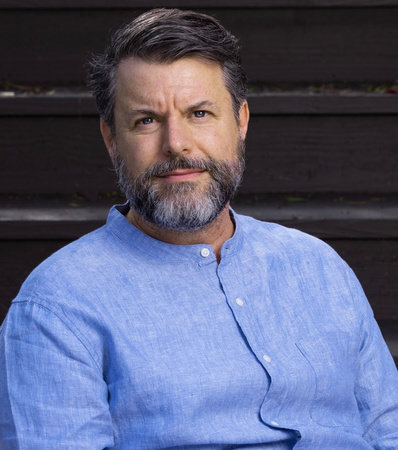
Charles Duhigg is graduate of Yale University and Harvard Business School, Charles has been a frequent contributor to This American Life, NPR, The Colbert Report, PBS’s NewsHour, and Frontline.
Charles led the team that won the 2013 Pulitzer prize in explanatory journalism for “The iEconomy,” a series that examined the global economy through the lens of Apple. That series included examinations of such topics as the factories in China where iPhones and iPads are manufactured.
Charles has also received The George Polk award, the Gerald Loeb award, the Investigative Reporters and Editors Medal, the Scripps Howard National Journalism award, the Robert F. Kennedy Journalism Award, and other honors.
While a reporter at the Los Angeles Times, Charles reported from Iraq about American military operations.
Before becoming a full-time journalist in 2003, Charles worked as an analyst for American Property Global Partners, a private equity firm and co-founded SWPA Education Management Group, L.L.C., which developed education programs for medically underserved areas.
He was also, for one terrifying day in 1999, a bike messenger in San Francisco.
Charles lives in Santa Cruz with his wife and two children.
Links and SourcesApple – RSS – Simplecast – Spotify – Amazon Music – Audible – Google Podcasts
January 20, 2024
YANSS 279 – Why people don’t speak out against, and even defend, norms they secretly despise
Have you ever been in a classroom or a business meeting or a conference and had a question or been confused by the presentation, and when the person running the show asked, “Does anyone have any questions?” or, “Does anyone not understand?” or, “Is anyone confused?” you looked around, saw no one else raising their hands, and then chose to pass on the opportunity to clear up your confusion?
If so, then, first of all, you are a normal, fully functioning human being with a normal, fully functioning brain, because not only is this common and predictable, there’s a psychological term for why most people don’t speak up in situations like these. It’s called pluralistic ignorance.
Listen on Apple Listen on Spotify Listen on GoogleRSS – Patreon – Simplecast – Amazon Music – Audible
In a “Does anyone have any questions?” scenario like this, each confused individual waits to see if anyone else raises their hands, not wanting to be singled out as the only person falling behind. When no one does, each then assumes they must be the only person who has no idea what is going on and decides to remain silent. After a few seconds, the speaker moves on, and the result is a shared, inaccurate view of reality in which everyone thinks that everyone else has no questions. The speaker thinks the room is following along just fine, and everyone begins living a lie.
There are several ways to define pluralistic ignorance, and that’s because it’s kind of a brain twister when you try to put it into words. Psychologist Deborah Prentice says, it’s “a phenomenon in which you feel like you’re different from everyone else, but in fact you are exactly the same. It’s a kind of illusory deviance, a sense that you are not with the majority that everyone in the majority can have simultaneously.”
And this phenomenon scales up to the level of norms. When people are unhappy with a norm, but aren’t sure if they are alone in that thinking, when they don’t know what the majority opinion truly is, they play it safe and adhere to the norms of the day, but since we can’t read each other’s minds, we assume that others are following norms because they actually believe in them. Everyone in the group, at the same time, gets stuck following a norm that no one wants to follow.
The false belief that the majority supports an unpopular norm slows down the process of ending it and sways policy makers, employers, advertisers, and the rest of society to act as though they live in a world that isn’t really there. And When change is on the horizon, pluralistic ignorance keeps people on the fringe, the sort of people whose beliefs and attitudes will be phased out by that change, clinging to their outdated worldviews for longer than they would otherwise. It also keeps their opponents feeling less supported than they truly are while pushing people in the middle to favor the status quo. In the end, a make-believe status quo changes the way everyone acts and thinks. As sociologists Hubert J. O’Gorman and Stephen L. Garry once put it, in situations like these, people often “unintentionally serve as cultural carriers of cognitive error.”
Pluralistic ignorance has been blamed for everything from excessive drinking on college campuses to the persistence of racial segregation well into the 1970s. So, how do you deal with such a strange and mind-twisting phenomenon? Well, for some norms, the solution is simple, though it can take a lot of organization and effort. You must ask everyone what they really think and feel, and then you broadcast that to everyone in some way. You must make the private public. You must make it safe to say what is really on your mind — or you simply reveal that it was safe to do so all along.
Many scientists bring up the parable of “The Emperor’s New Clothes.” In the story by Hans Christian Andersen, a vain emperor hires two tailors who tell him they’ve made a suit of clothes so fine that it appears invisible to people who are unfit for their job or are very dumb. The trick, of course, is that the tailors haven’t made anything at all. All the emperor’s lackeys and subjects act as if his clothes were beautiful and amazing out of fear of appearing stupid or unfit, until finally a child points out that the emperor is walking around naked. At that point, everyone sighs in relief and feels safe to say what they were thinking all along. Stories with similar plots go back to antiquity, so the idea has been with us for a long time. The takeaway is usually: if someone has the courage to speak up, then the spell will be broken.
But there is an exception. A dark, terrible exception. When almost everyone in a group privately disagrees with a norm, or a decision, or an idea, or a practice, or a plan…but everyone also thinks they are alone in that disagreement, they may go along with what they think is the consensus, which leads a group of people to prepare to act in a way that no one actually wants to act. When one person speaks up, instead of breaking the spell, the crowd will sometimes shout that person down.

That’s what happened in 1978 at Jonestown, when Jim Jones asked 700 people to kill 300 of their children and then themselves. One person, Christine Miller, stood up and plead for everyone to choose another option. She defied her leader, and her community. Instead of joining her in revolt, the people around her engaged in what psychologists call false enforcement. By shouting at her, they signaled they were willing to die to show their loyalty to the group, even though in so doing they destroyed the very group to which they were signaling their allegiance.
False enforcement is one of our most twisted predilections, a sort of algorithmic mental malfunction that can cause pluralistic ignorance to turn deadly, and in this episode, you will learn how prevalent it is out here among our everyday lives, and what we can do about it.

Download – iTunes – Stitcher – RSS – Patreon – Soundcloud

This episode is sponsored by The Great Courses Plus. Get unlimited access to a huge library of The Great Courses lecture series on many fascinating subjects. Start FOR FREE with The Psychology of Human Behavior taught by David W. Martin. Learn about how your mind makes sense of the world and what motivates us to think, feel, and behave differently from one another. Click here for a FREE TRIAL.

Support the show directly by becoming a patron! Get episodes one-day-early and ad-free. Head over to the YANSS Patreon Page for more details.


Deborah Prentice is a professor of psychology and provost at Princeton University. Her work focuses on “how people are guided by norms and constrained by norms; how they respond when they feel out of step,” and how they determine what the norms of their groups and communities are; and how they react… to those who violate social norms.”

Robb Willer is a professor of sociology, psychology, and organizational behavior and the director of the Polarization and Social Change Laboratory at Stanford University. He studies the social forces that bring people together, divide them, and shape their political attitudes.
Links and Sources
Apple – RSS – Simplecast – Spotify – Amazon Music – Audible – Google Podcasts
Pluralistic Ignorance and Alcohol Use on Campus: Some Consequences of Misperceiving the Social Norm
The False Enforcement of Unpopular Norms
Christine Miller: A Voice of Independence
IMAGE CREDIT: Emperor’s New Clothes: Vilhelm Pedersen (1820 – 1859)
IMAGE CREDIT: Christine Miller: San Diego State University
IMAGE CREDIT: Jonestown: NBC News Archives
MUSIC CREDIT: Mogwai, Drew Garraway, Snabish
January 7, 2024
YANSS 278 – Florence Hazrat on the history of punctuation and why the exclamation point was invented after the question mark!
On this episode we learn about the history of the exclamation point, the question mark, and the semicolon (among many other aspects of language) with Florence Hazrat, a scholar of punctuation, who, to my great surprise, informed me that while a lot of language is the result of a slow evolution, a gradual ever-changing process, punctuation in the English language is often an exception to this – for instance, a single person invented the semicolon; they woke up and the semicolon didn’t exist, and then went to bed that night, and it did!
Listen on Apple Listen on Spotify Listen on GoogleRSS – Patreon – Simplecast – Amazon Music – Audible

Official Description of the Book:
Ever been annoyed at one too many !!!!! on a social media post? Ever wondered whether that extra ! is too forceful, and should make way for a modest full stop ? Then An Admirable Point is for you.
The book traces the roots of ! in the manuscript culture of the late Middle Ages following its vagaries across centuries, oceans, and text media right up to its current flights of fancy in the digital soup of electric impulses we call the internet. Along the way, An Admirable Point examines how our prim and pristine Miss Jane Austen actually started as a wild exclamation marker and other ! in literature, why a well-placed ! sells for millions of dollars in art auctions, what happens in our head when we see a !, how ! helps us surf the internet, and what the promises and pitfalls of ! can be when it dips its stroke-dotted toes into politics and public life.
An Admirable Point: A Brief History of the Exclamation Mark is an unapologetic manifesto for exclaiming — exclaiming in surprise, wonder, and admiration at the world and ourselves.

Florence Hazrat is a scholar of punctuation in early modern literature. She studied at Cambridge and St. Andrews and is a BBC New Generation Thinker, a folk fiddler, and the host of Standing on
Points, a podcast about dots and dashes. She loves all
things punctuation and Shakespeare. Hazrat is based in Germany, working on punctuation in language and culture, and on Renaissance literature. Before she discovered her secret passion for the exclamation point, she was a fellow at the University of Sheffield studying brackets in early modern literature, and at the University of Geneva, working on Shakespearean translations.
“Words, words, words. I live for words, especially the unruly ones that sneak into unexpected (and uncomfortable) places. Turncoat words that mean one thing, and then another, and then again another, depending which way you turn them. Words that are inside out, themselves and one another.”
Links and SourcesApple – RSS – Simplecast – Spotify – Amazon Music – Audible – Google Podcasts
YANSS 277 – Temple Grandin discusses the various styles of thinking used by human brains to make sense of the world outside of their skulls
Temple Grandin was born at a time when words like neurodivergent and neurotypical had yet to enter the lexicon and autism was not well understood. Since she didn’t develop speech until much later than most children, she might have led a much different life if it hadn’t been for people around her who worked very hard to open up a space for her to thrive and explore her talents and abilities. In this episode we discuss all that as well as her latest book, Visual Thinking, all about three distinct ways that human brains create human minds to make sense of the world outside of their skulls.
Listen on Apple Listen on Spotify Listen on GoogleRSS – Patreon – Simplecast – Amazon Music – Audible
OFFICIAL DESCRIPTION FROM THE BOOK WEBSITE
A quarter of a century after her memoir, Thinking in Pictures, forever changed how the world understood autism, Temple Grandin—the “anthropologist on Mars,” as Oliver Sacks dubbed her—transforms our awareness of the different ways our brains are wired. Do you have a keen sense of direction, a love of puzzles, the ability to assemble furniture without crying? You are likely a visual thinker.
With her genius for demystifying science, Grandin draws on cutting-edge research to take us inside visual thinking. Visual thinkers constitute a far greater proportion of the population than previously believed, she reveals, and a more varied one, from the photo-realistic object visualizers like Grandin herself, with their intuitive knack for design and problem solving, to the abstract, mathematically inclined “visual spatial” thinkers who excel in pattern recognition and systemic thinking. She also makes us understand how a world increasingly geared to the verbal tends to sideline visual thinkers, screening them out at school and passing over them in the workplace. Rather than continuing to waste their singular gifts, driving a collective loss in productivity and innovation, Grandin proposes new approaches to educating, parenting, employing, and collaborating with visual thinkers. In a highly competitive world, this important book helps us see, we need every mind on board.
 Temple Grandin and David McRaney
Temple Grandin and David McRaneyTemple Grandin is a professor of animal science at Colorado State University and the author of the New York Times bestsellers Animals in Translation, Animals Make Us Human, The Autistic Brain, and Thinking in Pictures, which became an HBO movie starring Claire Danes. Dr. Grandin has been a pioneer in improving the welfare of farm animals as well as an outspoken advocate for the autism community. She resides in Fort Collins, Colorado.
Apple – RSS – Simplecast – Spotify – Amazon Music – Audible – Google Podcasts
December 18, 2023
YANSS 276 – How to handle contentious conversations with people ready to get angry over how your opinion isn’t their opinion
In this episode David McRaney is interviewed by Andrea Chalupa about the psychological research covered in How Minds Change that could help if you expect to spend time with a family member this holiday who can’t wait to pull you into an argument about politics, a wedge issue, or something else buzzing in the zeitgeist over which they’d love to start a fight. But, also, this is good stuff to know before ANY contentious conversation you might have in the future with someone who is quick to aggression and ready to get angry over how your opinion isn’t their opinion.
Listen on Apple Listen on Spotify Listen on GoogleRSS – Patreon – Simplecast – Amazon Music – Audible

Gaslit Nation, co-founded and previously co-hosted by writers Sarah Kendzior and Andrea Chalupa, experts on authoritarian states who warned America about election hacking before the 2016 election, is now hosted by Andrea Chalupa.
The show takes a deep dive on the news, skipping outrage to deliver analysis, history, context, and sharp insight on global affairs. Subscribe today to catch up on previous episodes and get new ones! (also available on Spotify, Stitcher, Google Play, TuneIn, and PocketCasts).
You can find episodes and transcripts here.

Andrea Chalupa graduated from the University of California, at Davis with High Honors in History, with a focus on Soviet History, she studied Ukrainian at the Harvard Ukrainian Research Institute and the International School of Ukrainian Studies in L’viv, Ukraine. As a journalist, she cut her teeth in the newsrooms of Conde Nast Portfolio and AOL Money & Finance, and has written articles and columns for The Daily Beast, Forbes, TIME, and The Atlantic. Since 2004, while finishing her History thesis on the role of religion in Ukraine’s independence movement at the fall of the Soviet Union, she began dreaming up a screenplay that would take her fifteen years to research, write, and produce. That screenplay became MR. JONES, directed by three-time Academy Award-nominee Agnieszka Holland and starring James Norton, Vanessa Kirby, Peter Sarsgaard, and Joseph Mawle as George Orwell. Much of the research for the film was compiled into her book Orwell and The Refugees: The Untold Story of Animal Farm, which has been taught in classrooms in Canada and Ukraine through the genocide education program Orwell Art.
Links and SourcesApple – RSS – Simplecast – Spotify – Amazon Music – Audible – Google Podcasts
December 11, 2023
YANSS 275 – Could a fungus that takes over the minds of living creatures really cause a deadly pandemic in humans like in The Last of Us?
How likely is the fungal infection in The Last of Us? The one that takes over human brains and brings humanity to the brink of extinction, could something like that really happen?
In this episode we sit down with Emily Monosson, an expert on deadly fungal infections, and discuss the handful of fungi (we know of) that are today, right now, causing catastrophic declines in wildlife, eradicating trees, destroying crops, and increasingly impacting humans.
Monsoon explains that many in the field worry that fungi are an underestimated threat and that our actions are causing an increase in invasive and deadly fungal epidemics. We explore what is at stake, why this is happening now, and what we can do to prevent future outbreaks.
Listen on Apple Listen on Spotify Listen on GoogleRSS – Patreon – Simplecast – Amazon Music – Audible

OFFICIAL DESCRIPTION OF THE BOOK
A prescient warning about the mysterious and deadly world of fungi—and how to avert further loss across species, including our own.
Fungi are everywhere. Most are harmless; some are helpful. A few are killers. Collectively, infectious fungi are the most devastating agents of disease on earth, and a fungus that can persist in the environment without its host is here to stay. In Blight, Emily Monosson documents how trade, travel, and a changing climate are making us all more vulnerable to invasion. Populations of bats, frogs, and salamanders face extinction. In the Northwest, America’s beloved national parks are covered with the spindly corpses of whitebark pines. Food crops are under siege, threatening our coffee, bananas, and wheat—and, more broadly, our global food security. Candida auris, drug-resistant and resilient, infects hospital patients and those with weakened immune systems. Coccidioides, which lives in drier dusty regions, may cause infection in apparently healthy people. The horrors go on.
Yet prevention is not impossible. Tracing the history of fungal spread and the most recent discoveries in the field, Monosson meets scientists who are working tirelessly to protect species under threat, and whose innovative approaches to fungal invasion have the potential to save human lives. Delving into case studies at once fascinating, sobering, and hopeful, Blight serves as a wake-up call, a reminder of the delicate interconnectedness of the natural world, and a lesson in seeing life on our planet with renewed humility and awe.

Emily Monosson is the author of Natural Defense, Unnatural Selection, and Evolution in a Toxic World. She is a member of the Ronin Institute for Independent Scholarship and an adjunct faculty member at the University of Massachusetts Amherst. She lives in Montague, Massachusetts.
“I was trained, and worked as a toxicologist for the first part of my career. Now I write books about problems in the natural world and when there are some, hopeful solutions. When I am not at my computer I am often somewhere on Mount Toby, or trying to control chaos in the garden.”
Links and SourcesApple – RSS – Simplecast – Spotify – Amazon Music – Audible – Google Podcasts
Blight: Fungi and the Coming Pandemic
November 27, 2023
YANSS 274 – How cascades of rapid change routinely sweep across families, institutions, and nations
In this episode we sit down with Greg Satell, a communication expert whose book, Cascades, details how rapid, widespread change can sweep across groups of people big and small, and how understanding the psychological mechanisms at play in such moments can help anyone looking to create change in a family, institution, or even nation, prepare for the inevitable resistance they will face.
Listen on Apple Listen on Spotify Listen on GoogleRSS – Patreon – Simplecast – Amazon Music – Audible

OFFICIAL DESCRIPTION OF THE BOOK
If you could make a change—any change you wanted—what would it be? Would it be something in your organization or your industry? Maybe something in your community or throughout society as a whole? If you had a magic wand that would allow you to instantly change anything you wanted, what would that change look like?
In Cascades, one of today’s top innovation experts delivers a guide for driving transformation change based on the new science of networks and research into dozens of people and organizations that have created truly historic impact. This book will show that to truly change the world or even just your little corner of it, you don’t need a charismatic leader or a catchy slogan. What you need are small groups, loosely connected, but united by a common purpose.
Perhaps most of all, Cascades points to a new role for leaders, who can no longer rule by fiat or merely plan and direct action, but must inspire and empower belief. “Power no longer sits at the top of hierarchies,” he writes, “but emanates from the center of networks.”
Click here to download a FREE excerpt (Preface & Introduction)
 Greg Satell
Greg SatellGreg Satell is Co-Founder of ChangeOS, and bestselling author of Cascades: How to Create a Movement that Drives Transformational Change, whose work has appeared in Harvard Business Review, Barron’s, Forbes, Inc., and Fast Company. His earlier book, Mapping Innovation, was selected as one of the best business titles of 2017.
A Lecturer at Wharton, Greg helps organizations overcome resistance to change and build a better future.
Greg was formerly a senior executive for the Publicis Groupe, one of the world’s largest marketing services companies. Before that, Co-CEO of KP Media, which was sold to Ukraine Media Holding in 2010.
A global citizen, Greg spent 15 years living and working in Eastern Europe where, among other things, he managed a news organization during Ukraine’s Orange Revolution.
Links and SourcesApple – RSS – Simplecast – Spotify – Amazon – Audible – Google Podcasts
November 12, 2023
YANSS 273 – How to test just how much you (and your friends and family) do (or do not) believe in a variety of conspiracy theories
In this episode Jesse Richardson tells us all about ConspiracyTest.org, a new project designed to be a weird, fun, and cleverly educational way to explore just how skeptical you are (and could be) about a variety of conspiracy theories. The whole thing is designed to be very sharable and very viral, and it’s launching right before Thanksgiving 2023 so that you can share it with your conspiracy-theory-entertaining friends and family over the holidays, in person or over social media (but you should definitely try it out on yourself first).
RSS – Patreon – Simplecast – Amazon – Audible

OFFICIAL DESCRIPTION OF THE TEST:
The Conspiracy Test is a gamified interactive platform to help increase healthy skepticism for conspiracy theories.
Users can select a theory they think might be true then set a baseline of skepticism and challenge themselves through a series of self-directed steps to increase their Critical Thinking Score
Features include:
Fostering probabilistic thinking by using a percentage scaleA gamified Critical Thinking Score which rewards increased skepticismInstead of attacking beliefs, giving people agency to conduct their own ‘critical thinking investigation’ A thoughtful focus on user experience and user interface designAn iterative approach which split-tests different ways to increase skepticism and belief mobility so as to improve the platform, and outcomes, over timeA formal research study which will seek to empirically validate the findings such that they can be used by other platforms and media channels to increase informational integrity, as well as decrease the effectiveness of disinformation campaigns
Initial results indicate a significant effect with participants increasing their average skepticism for conspiracy theories by 30%
Unfettered conspiracy thinking can lead to dangerously extremist beliefs and actions, increase political polarization, and give cover to actual conspiracies.
This project aims to learn and implement what works best to increase healthy skepticism and mitigate uncritical conspiracy thinking.
We aim to test and demonstrate effectiveness such that these learnings can be implemented at scale on other platforms and channels.
The School of Thought’s mission more broadly is to help us question all schools of thought by popularizing critical thinking, reason, and understanding.
The Conspiracy Test is an initiative of the School of Thought, a 501c3 non profit organization, in collaboration with the University of Queensland’s Critical Thinking Project.
It was funded through The School of Thought’s own merchandise sales (also available as free Creative Commons downloads) and philanthropic donations from Gabriel Weinberg from DuckDuckGo, and Pskydin, Founder of Metal Warrior. It has not received funding from any governments, pharmaceutical companies, nor deepstate illuminati alien lizards.
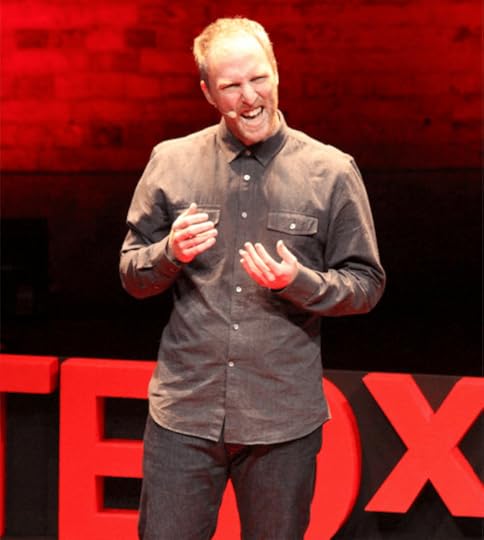
Jesse Richardson is an internationally award-winning advertising creative director, and the founder of The School of Thought International.
Years ago, he decided to apply what he knew about design and advertising to create an online school providing free creative and critical thinking resources in an attempt to answer: What if we made learning how to think truly fun and engaging?
Those resources have reached an estimated 30 million students, teachers, parents, leaders, managers and everyday people around the world in more than 7 languages
Links and SourcesApple – RSS – Patreon – Simplecast – Spotify – Amazon – Audible – Google
David McRaney's Blog
- David McRaney's profile
- 582 followers



